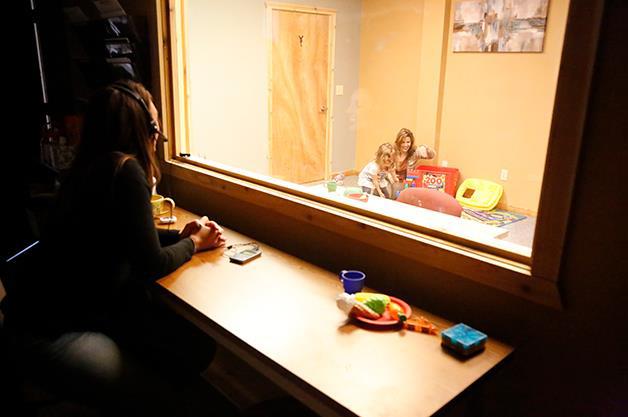
By Myra Werner
The Institute for Child and Family Well-Being has provided evidence-based Parent Child Interaction Therapy (PCIT) to families for the last six years, with the intention of integrating the therapy into the child welfare system. We initially provided in-home PCIT services to break down access barriers for families. We also provided an adaptation called Project Connect which was composed of two, six hour in-office trainings for foster parents on the skills learned in PCIT. We found in-home PCIT and group-based PCIT to be effective and rated highly by our clients. Currently, the demand for PCIT is greater than the number of therapists trained in PCIT in the Milwaukee area, often leading to long wait lists for families. Additionally, we identified that parents often report feeling isolated when parenting children with defiant or difficult to manage behaviors. In an effort to bring families together to create a sense of community, reduce the time families wait for services, and increase access to services, we developed a ten week multi-family group called Families Empowered Together (FET).
As we work closely with families involved with the child welfare system who experience great pressure to receive timely services within complex system demands, we offered our first group to foster parents and their children ages 3-6 years old. Guided by PCIT principles, goals were to teach and coach skills to enhance the parent-child relationship while increasing compliance and decreasing negative behaviors. We made the following modifications to the PCIT protocol: 1) Provided PCIT to three families at one time; 2) Two therapists facilitated the group sessions; 3) Provided a predetermined number of group sessions; 4) Did not require parents to meet “mastery” of skills to move from phase one to phase two.
In order to provide efficient and effective services, we paid close attention to several factors to meet each family’s unique needs. First, we prioritized coaching order and time by the level of each family’s need, spending more time coaching parents who required more support in developing their skills, and whose children continued to exhibit more intense behaviors. Second, we provided extra homework and skill-building activities to expedite the learning of skills, such as playing a skill drill game with parents before the first coaching session. Third, we personalized the room set up for each child despite the group format to meet individual needs. Fourth, as we are constantly striving to enhance family voice and quality improvement, we utilized rapid cycle feedback through surveys after each group and provided immediate modifications to the process when appropriate. Fifth, we provided individual therapy sessions for the first Parent Directed Interaction (PDI) coaching session and as needed throughout the group to enhance skills. Lastly, we worked with the Children’s Billing department to determine the most appropriate billing code – the Multi-Family Group code.
Through qualitative and quantitative data collection and evaluation, FET showed to be effective at improving behaviors and relationships, and was also highly rated on weekly participant surveys. Parents reported value in seeing other families work through similar situations and noted that this exposure helped to normalize their child’s problem behaviors. Parents reported feeling supported by group facilitators and members, and were observed sharing resources and exchanging phone numbers. All parents reported they would highly recommend this group to another parent. The process of rapid cycle feedback was helpful from a clinician standpoint to make improvements to each group, i.e. provided name tags, changed room temperature.
Although we were not requiring mastery of the skills before ending treatment, of the three children, three of their parents met mastery of all skills in CDI and PDI. In addition to parent mastery success, all child behaviors decreased on the Child Behavior Checklist (CBCL) and Eyberg Child Behavior Inventory (ECBI) assessment tools – the majority to sub-clinical levels.
Learn More:
PCIT
Become trained in PCIT
PCIT in Child Welfare

